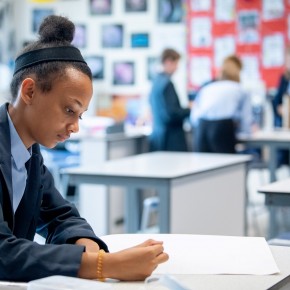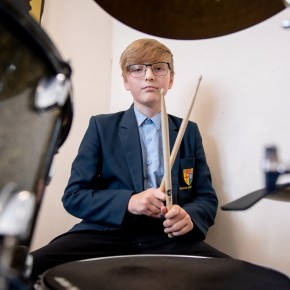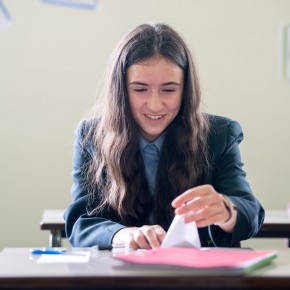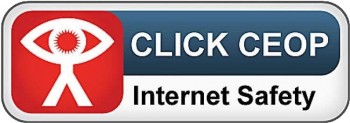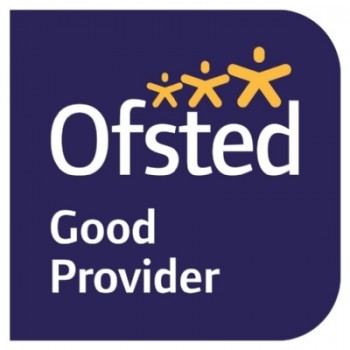History

History Curriculum Map
Our History curriculum is lively, interesting and extremely useful for gaining an understanding of the world we live in.
The History department has dedicated and knowledgeable staff. They bring passion to the subject, and aim to develop students understanding of the different topics studied through engaging and interesting lessons.
| Our Key Stage 3 History curriculum aims to provide a broad and balanced sweep through history from the Celts to the modern day. |
| Year 7 |
|
In Year 7 students explore the key people, events and ideas leading to the development of the modern world.
The topics studied include the following:
- The Norman Conquest. and its influence on England
- The role of the Church in England and why it was so important in people's lives.
- The problems of English monarchs with a focus on Edward I and his campaigns to conquer Wales and Scotland.
- Migration which looks at the different groups of people who have migrated to Britain and their impact on Britain.
- Challenges to the Catholic church with a local study based on Ingham Priory
- Changing ideas 1660-1789
|
| Year 8 |
|
In year 8 students study the Twentieth Century World and links to their lives today.
The topics studied include the following:
- The Slave Trade
- The Industrial Revolution
- Getting the vote including the Women's suffrage campaign
- The First World War its causes and the impact of the war in Europe
- Conflict in the Twentieth Century focusing particularly on Hitler's rise to power and the key events and consequences of World War Two at home and abroad
- The Holocaust
Throughout Key Stage 3 particular focus is given to the changing role of women in history. We study important individuals like Eleanor of Acquitaine, Empress/Queen Margaret of England, Mary I, Elizabeth I, Mary Wollstonecraft and the Pankhursts, as well as lesser-known but equally significant individuals like Caroline Norton and Millicent Fawcett and the ordinary women experiencing change over this thousand years.
|
|
For our GCSE course, we follow the Edexcel History B specification. Students will learn and use a wide variety of skills during the GCSE History course. These include understanding causes of change, analysing different historical sources, empathy, the ability to understand differing points of view and detect bias. Any student studying history has an understanding of the world around them.
|
| Year 9 |
|
In Year 9, students use their broad knowledge of the past thousand years to study Medicine from 1250 to the modern day, including a Historic Environment module on The British sector of the Western Front, 1914–18: injuries, treatment and the trenches. Students explore how and why the causes of disease, treatments and prevention of ill health have changed over time. Specific case studies focus on the Black Death, The Great Plague of London, the cholera epidemics of the 1840's and 1850's and the causes and treatment of lung cancer.
|
| Year 10 |
|
In Year 10 students move on to the British Depth Study, Anglo-Saxon and Norman England 1060-1088, which studies William, Duke Of Normandy and his invasion and conquest of Anglo-Saxon England.
Later in Year 10 students study the American West 1840-1895. This looks at the impact of the migration westward across America of millions of European settlers on the lifestyle and culture of Native Americans.
|
| Year 11 |
|
In Year 11 students study Modern History, consolidating the knowledge gained in Year 8. In Germany 1918-39, they examine the rise of Adolf Hitler and the Nazi Party, focusing on the Weimar Republic, Hitler’s dictatorship and life under Nazi rule.
|
|
In lessons and for homework, students develop their knowledge of subject content, practice examination questions and learn valuable study skills. We also run after-school revision sessions to fully prepare students for their examinations.
|
|
Examination Board: Edexcel
|
|
Students are required to complete three written examination papers:
Paper One: Thematic study and historic environment (30% of the total GCSE) -Medicine in Britain, c1250–present and The British sector of the Western Front, 1914–18: injuries, treatment and the trenches.
Paper Two: Anglo-Saxon and Norman England(20% of the total GCSE) and The American West 1845-1895 (20% of the total GCSE)
Paper Three: Germany 1918-1939 (30% of the total GCSE)
|
Key Skills
Woven into all our History lessons at Stalham are key Historical skills: assessing cause and consequence, change and continuity and significance, analysing sources and evaluating interpretations.
Using these skills, students are encouraged to argue their case, ask questions, weigh up evidence, challenge viewpoints and reach a judgement.
In History students improve their literacy skills through extensive reading, developing a wide vocabulary and using a ‘Point Example Analysis’ paragraph structure in their written work. We also make valuable cross-curricular links to many other subjects, including Philosophy and Ethics, Geography, Photography, Art and Music.
History is taught in mixed ability groups. We aim to use a variety of resources such as film clips, photographs and documents. History is a literacy-based subject, and you will have to write coherent answers that range from a paragraph in length to short essays.
Employers, sixth form colleges and universities value the skills students develop through studying History. Employers appreciate your ability to analyse information and draw conclusions, whether you’re analysing the customer profile of a leading clothing chain or briefing a client on marketing strategy. History supercharges such skills. It encourages you to think for yourself and support your ideas with carefully chosen evidence and it teaches you to research a subject and present your findings in a coherent way. Most important of all, History is intrinsically interesting, and an understanding of how this country and the wider world have developed will help you to become a thoughtful, well-informed member of today's global society.
